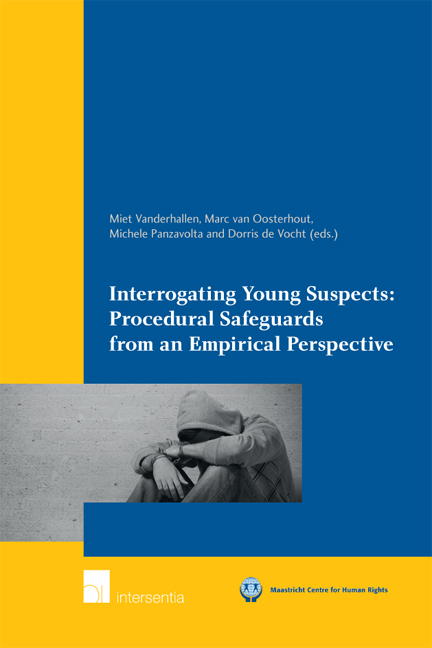Book contents
- Frontmatter
- Preface and Acknowledgements
- Contents
- List of Abbreviations
- Biographies
- Chapter 1 Introduction
- Chapter 2 Research Methodology
- Chapter 3 Belgium: Empirical Findings
- Chapter 4 England and Wales: Empirical Findings
- Chapter 5 Italy: Empirical Findings
- Chapter 6 The Netherlands: Empirical Findings
- Chapter 7 Poland: Empirical Findings
- Chapter 8 Integrated Analysis
- Chapter 9 The Guidelines
- Annexes
- Maastricht Series in Human Rights
Chapter 2 - Research Methodology
Published online by Cambridge University Press: 21 September 2018
- Frontmatter
- Preface and Acknowledgements
- Contents
- List of Abbreviations
- Biographies
- Chapter 1 Introduction
- Chapter 2 Research Methodology
- Chapter 3 Belgium: Empirical Findings
- Chapter 4 England and Wales: Empirical Findings
- Chapter 5 Italy: Empirical Findings
- Chapter 6 The Netherlands: Empirical Findings
- Chapter 7 Poland: Empirical Findings
- Chapter 8 Integrated Analysis
- Chapter 9 The Guidelines
- Annexes
- Maastricht Series in Human Rights
Summary
INTRODUCTION
This chapter describes the approach of the empirical study as well as the integrated analysis of the legal and empirical findings, which in turn enabled us to develop a set of proposed minimum rules informed by both law and practice. Providing a minimum level of effective legal protection for juvenile suspects depends not only on a proper legal framework being in place but also on good practices that address the nature of the vulnerability of juvenile suspects. The objective of the empirical study was to gain insight into the extent to which practices live up to the domestic legal frameworks of the five countries which are described in detail in volume I (Belgium, England & Wales, Italy, Netherlands and Poland). Additionally, the empirical study was aimed at identifying good practices in these jurisdictions, with a view to developing improved standards and safeguards which could be implemented across the EU. As discussed in volume I, this objective should be seen against the background of current legislative developments at the EU level which have led to the tabling of a draft Directive on procedural safeguards for children suspected or accused in criminal proceedings. In order to achieve these improved EU wide standards and safeguards, it was necessary to understand how legal actors deal with the interrogation of juvenile suspects, which factors drive their behaviour, and how juvenile suspects are dealt with more generally. In addition to the examination of the practices of legal actors, the study also focused on the experiences of the juvenile suspect who is being interrogated, in order to grasp the interaction between all parties involved, and to understand the behaviour of the young person as a vulnerable suspect. In this way, the empirical study also sought to identify the nature of the possible vulnerability of juvenile suspects when being interrogated and how legal procedural protections might be most effective in providing protection, where necessary.
The empirical study started from the findings of the comparative legal study which suggested a two-stage approach to the empirical study. First, the type of interrogation needed to be selected. The legal study showed that whilst some countries dealt with juvenile suspects simply by way of police interrogation, others adopted different or mixed models, involving prosecutors, judges and the family court, as well as criminal proceedings.
- Type
- Chapter
- Information
- Interrogating Young Suspects IIProcedural Safeguards from an Empirical Perspective, pp. 7 - 54Publisher: IntersentiaPrint publication year: 2016
- 1
- Cited by

